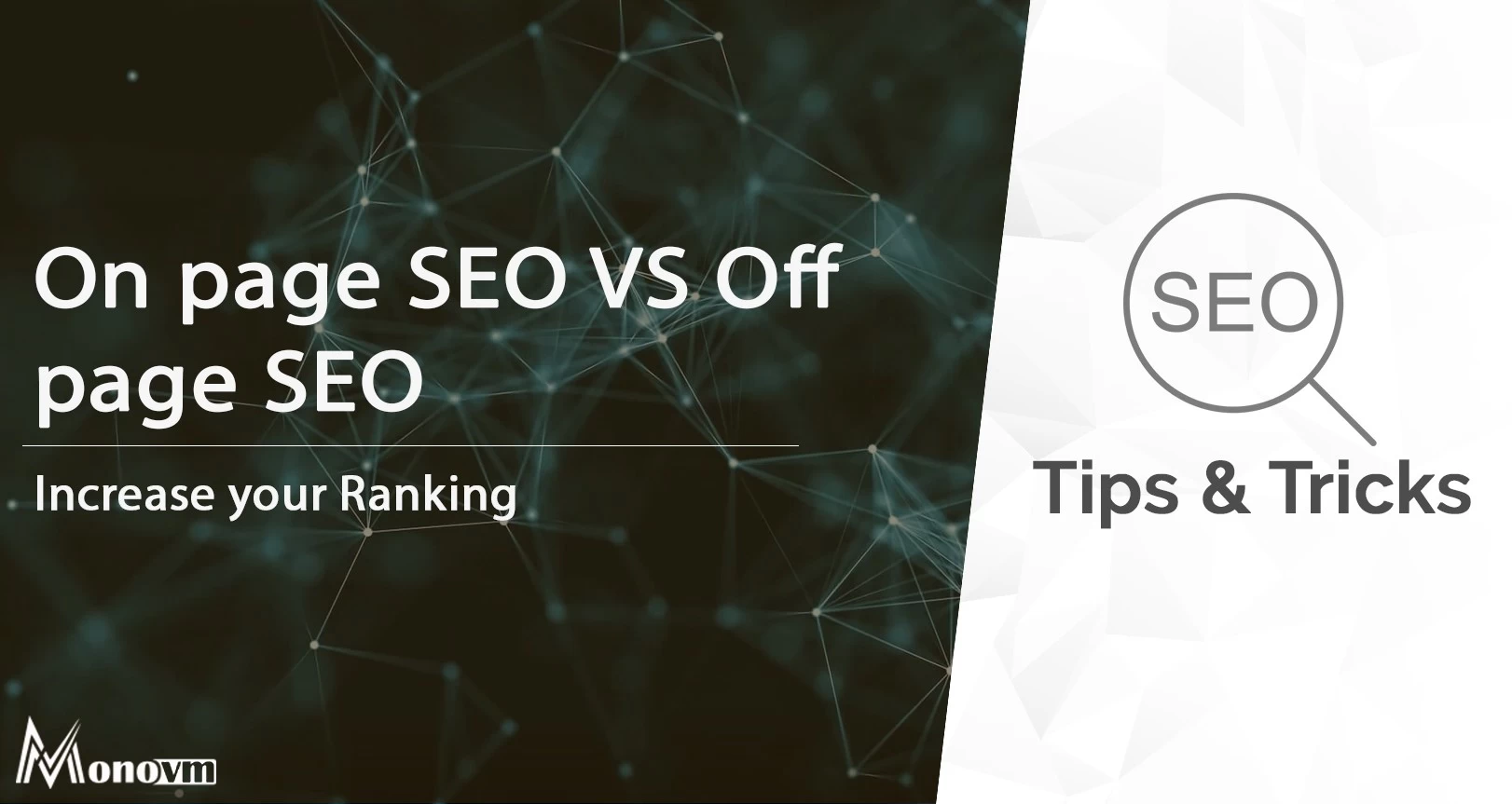SEO is a term that has been around almost since the beginning of the internet. Since then organizations have been using SEO techniques in order to reach out to people, bring traffic to their sites and provide knowledge. (SEO: Search Engine Optimization)
The growth of the internet since the 90s till now had a tremendous growth. SEO has also grown so much since the beginning and it’s ever changing. Filling pages with backlinks and stuffing keywords on your content worked couple of years ago but not anymore. The main goal of search engines is to provide quality content for search queries. The provided content is a mixture of on page and off page rich SEO content.
What is that?
You’re in the right place. We will go through on page SEO, off page SEO and the best practices of SEO.
On page SEO
These are all the things that you can do on your website/page which will directly affect your ranking on SERPs. After searching something on Google, it appears on the Search Engine Result Page (SERP). If you want to learn more in depth about the SERPs, check SERP features of Google.
The on page SEO techniques is a combination of both content and technical elements which improves the quality of the page. In short: the better SEO techniques you follow, higher the relevant traffic to your website.
Now let’s get to the nitty-gritty details of optimizing your webpage.
- Write for the people: All content on the internet are meant for people (so far). So the information created should be relevant, informative and of high quality. Trying to impress Google’s algorithm by stuffing keywords and producing thin content will affect very badly on your ranking.
- Headlines: Imagine you wrote an amazing piece of content: informative, relevant and search engine optimized but the title is just meh. People on the internet has an attention span less than a goldfish and if the title isn’t interesting they will move on. Sometimes the title is more important than the content itself. When creating titles, make them interesting, compelling and grab the users attention in order to click on it to see the full content.
- Neat and Tidy layout: Have your website/page structured and appealing to the eyes. Keep it neat and tidy by having sub headings, numbered/bulleted lists, paragraphs and pictures. It won’t matter if people come to your website and then leave as soon as possible.
- Meta descriptions: This is the descriptions that you can see under the links on SERP. The goal of a meta description is to persuade the person to enter the website. Keep it short, precise and without misleading information. This will greatly help improve the click-through rate (CTR), impression of the quality of result and your website.
- URL structure
- Site speed
- Internal linking
- Responsiveness
For an in-depth view of the on page SEO practices you can check out our article which shows 10 best practices of on page SEO.
Off page SEO
Off page SEO are all the factors which takes place outside of your website which has an impact on your organic rankings with search engine result pages (SERPs). These off site SEO ranking factors boils down to relevance, trustworthiness and authority: the three pillars of Search Engine Optimization. However the biggest part of off site SEO is based on backlinks.
Backlinks
Just like keyword stuffing made it to the history books of SEO, so did the spam backlinks. Adding too many keywords will not get you promoted but rather get penalties. Search engines take into account both the number and quality of your backlinks, however quality over rules quantity in this case.
It’s considered better to have one quality reputable backlink rather than having 20 low-quality ones. This is not an easy task much because this is something that is not entirely under your control. Here are a few tricks you can take into account in order to get reputable backlinks:
- Writing guest blogs
- Content which mentions influencers in your field
- Scour blogs for broken links and ask the site owner to replace it with one of yours
- Create and implement infographics
Brand mentions
Brand mentions can be either linked or unlinked when it comes to ranking factors. This was mentioned indirectly by Google in one of its patents which states that “people often cite brands and content without any linking, and we think that those mentions deserve to be used as a ranking factor along with linked mentions.”
Reviews
Having positive, genuine reviews on you Google My Business profile and on trusted third-party sites will provide you with a higher chance of appearing on the SERP snippets on google. The higher reviews you have on the internet the better chance of appearing higher on organic searches also.
To learn in depth check out our off page SEO article.
As a final note
The internet and the digital age is ever changing. As we mentioned earlier, focus on producing content that is targeted for people rather than impressing an algorithm. As history has taught us, the algorithms change with time and the people who only tried to focus on it were left behind.
Make evergreen quality content with the main goal of providing to the people. If you satisfy the people with quality, informative, relevant content: Google will also follow.

I'm fascinated by the IT world and how the 1's and 0's work. While I venture into the world of Technology, I try to share what I know in the simplest way with you. Not a fan of coffee, a travel addict, and a self-accredited 'master chef'.